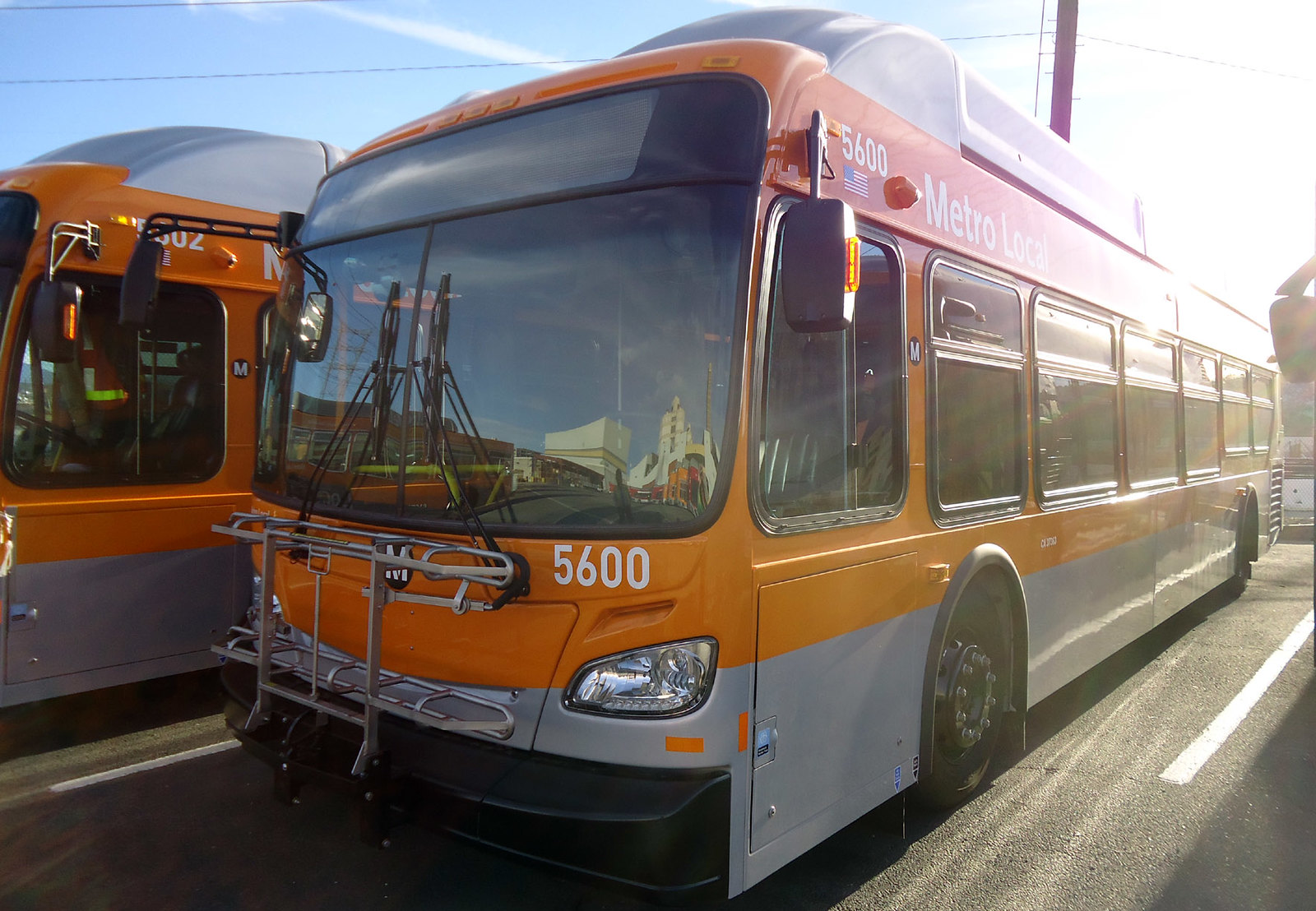Los Angeles's buses are losing so many riders you'd think they were filming a remake of "Speed."
Ridership on Los Angeles County buses plummeted 25 percent over the past decade as the region's Metropolitan Transportation Authority lost about 95 million trips, according to the Los Angeles Times.
It's the steepest decline among major transit systems in the country, matching a stubborn nationwide slump for public transit with 31 of 35 largest metropolitan areas in the country losing ridership last year. In LA, only 2 percent of the region's population uses public transit very often, about 20 percent ride rail or buses occasionally, and more than 75 percent never or very rarely use transit, a 2018 UCLA study found.
Instead, car ownership has been growing, particularly among low-income immigrants and Latinos in Los Angeles as well as Imperial, Orange, Riverside, San Bernardino, and Ventura counties, according to the UCLA study. The share of foreign-born households that don't have access to a car fell 42 percent between 2000 and 2015, the study found.
Californians are making the choice to purchase a car over taking public transit for several reasons.
Rising rents in Los Angeles have made housing unaffordable and pushed low-income families to the transit-starved suburban outskirts where a car is more likely to be seen as a necessity.
Lower immigration rates and a state law that allows undocumented immigrants to apply for a driver's license is decreasing the pool of people who rely on public transit to get around the region, the LA Times reported.
A surge in the city's homeless population — up 16 percent in the past year — has strained the bus system and led to complaints about rider safety.
Perhaps most damningly, the buses themselves are slow and unreliable. Average bus speeds decreased from 12 to just over 10 miles per hour over the past 10 years, plaguing riders with long wait times, delays, and multiple transfers just to get to work or school.
One beleaguered commuter who spends five hours a day getting to her college classes told the Los Angeles Times, “Driving here is a pain because of the traffic, but it’s still more convenient. On the bus, I just can’t get from Point A to Point B whenever I need to go. I hate it.”
The increased number riders trading their Metro cards for driver's licenses is worrisome particularly as California seeks to curb traffic congestion and reduce greenhouse gas emissions to 40 percent below 1990 levels by 2030.
The Metro board has largely focused on expanding the county's lattice network of rail system, adding $2 billion for building transit in its $7.2 billion Fiscal Year 2020 budget.
The agency slightly boosted bus service hours from 7.02 million to 7.1 million for 2020 and is redesigning 165 lines and 14,000 stops for the first time in decades.
Yet navigating buses through Los Angeles roadways at a higher speed remains a challenge. If buses can't transport passenger quickly and more efficiently than a private vehicle, there's little incentive to take one.
“Having a good basic service is critical, and that service has to be run well,” Conan Cheung, a senior executive at LA Metro, told the LA Times. “If it’s not on time, if we don’t have priority, or if we can’t speed up our service in relation to driving, then it’s going to be difficult to capture new riders.”






